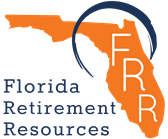Retiring under 59 1/2
Retiring Before Age 591/2
Early retirement is something most of us dream of, but can be difficult for many to become a reality. There are many factors to consider when it comes to early retirement. Two of the biggest concerns individuals often have are tax consequences, and out-living their retirement funds. Planning your future retirement income in advance can help make early retirement more possible. Below are a few things to consider and some helpful tips if you are planning on retiring early.
Tax Consequences of Early Retirement
As many of us are aware, there is often a 10% federal tax penalty involved with distributions from a retirement prior to age 591/2. This penalty is on top of your normal federal income tax due on your distributions, and can cause a real problem of spending more than you plan to in retirement. Fortunately there are couple of ways to avoid this penalty that may apply to you.
The first way to avoid the 10% penalty is utilizing IRS Rule 72(t). This rule allows for the retiree to take substantially equal periodic payments beginning when the individual retires that will be taken for life. This can sometimes not fit with your income goals for your retirement plan though, and may not allow you to have the flexibility with your retirement income that you would like to have.
The second way to avoid the 10% penalty is known as The Rule of 55. This can apply to individuals who retire from their employer after age 55, and then start taking distributions from their retirement plan. This does not work if the individual is still working for the employer plan. That being said, the individual can separate from service and work elsewhere, ore even go back to work for the employer at a later date. Another benefit to the rule is you do not actually have to be age 55 for the rule to apply. You must reach age 55 before December 31st of the year in which you retired from the employer.
Making Retirement Income Last Longer Than Planned
Early retirement can take a toll on your retirement plan assets by taking distributions for more years than at a standard retirement age. When you couple this with potentially needing private health insurance coverage before being eligible for Medicare at age 65, the cost of early retirement can be considerable. Early retirement usually requires planning ahead. Below are a few things to consider when making plans for early retirement.
Assess your investments and risk tolerance to see how your investments might change to remain appropriate once you stop working.
Consider the fact that you will need to be withdrawing assets for up to 10 years longer than you may have originally planned. This means you will usually either need more retirement capital, or a more aggressive investment strategy to stretch the length of your retirement income goal.
Plan your health insurance coverage needs in advance. For some families, health insurance costs after retirement and before medicare can exceed $1,000 a month. Knowing what you will need, and roughly how much it will cost will help you be able to plan your income goals in advance.
Consider the impact to your social security if you were to start drawing social security early at age 62 instead of your normal retirement age. This could reduce your Social Security benefit as much as 30%.
Early retirement is possible providing you prepare in advance. If you are unsure about your options for early retirement, or have questions about how you might be able to retire early, schedule a meeting by selecting the option below and one of our financial professionals will be happy to answer your early retirement questions.

